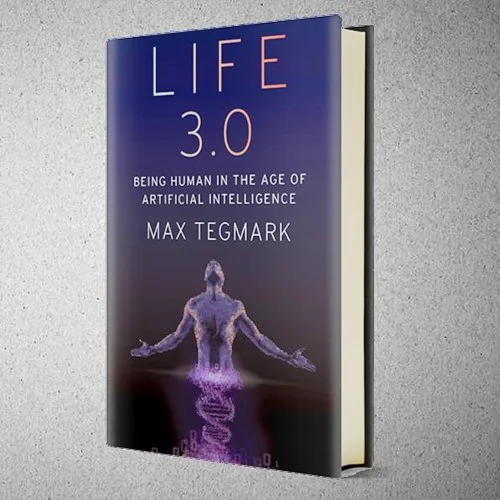In the current global discourse, Artificial Intelligence (AI) has become the central focus in academic, international relations, and financial circles. The discussions surrounding AI are characterised by its transformative potential and existential threats, making it one of the most talked-about topics globally. Max Tegmark, a theoretical physicist, MIT professor, and president of the Future of Life Institute (FLI), delves into this intricate and multidimensional subject in his comprehensive work, “Life 3.0 – Being Human in the Age of Artificial Intelligence,” published in 2017.
Tegmark initiates the narrative with the Omega phenomenon, a hypothetical scenario that envisions a superintelligent program creating a clandestine company named Omega. This entity rapidly establishes dominance across diverse global sectors. Tegmark strategically deploys this narrative to underscore the potential consequences of a superhuman AI surpassing Homo sapiens, emphasizing the uncertainty surrounding AI’s future despite its definable characteristics.
Tegmark argues that in order to understand artificial intelligence, one needs to understand the concepts of intelligence, consciousness etc. For Tegmark intelligence is defined as “the ability to make use of cognitive potential to perform complex tasks”. He classifies different types of intelligence. Among them the most talked about concept is the idea of AGI or Artificial General Intelligence which means the ability of a machine embedded with an algorithm to perform tasks at par with human intelligence.
The author also defines associated concepts like computation and learning. He regards AI-oriented machine to be functionally operational only when it can understand computation. Tegmark holds that all AI, be it today or in the future, will be based on the computational theory of the mind, a concept that has been brilliantly explained by cognitive scientist Steven Pinker in his book How The Mind Works.
“Life 3.0 – Being Human in the Age of Artificial Intelligence”
Author: Max Tegmark
Publisher: Penguin Random House, UK
Pages: 361
Price: Rs 599
AI in the military field
The focus of the book’s third chapter is on the application of AI in the military, particularly Autonomous Weapon Systems (AWS) or killer robots that can minimise battlefield casualties and take out targets with much ease, provided it is fed with the right algorithm. Tegmark dismisses dystopian portrayals akin to the Terminator films but emphasises the potential proliferation of AI in military science. The discussion encompasses autonomous drones, the prospect of super-soldiers, and the allocation of significant budgets by global powers like the Pentagon and China to AI-related projects.
A key part of this chapter is his focus on autonomous drones, both surveillance and armed drones. The author contends that there is a distinct possibility of developing even super-soldiers sans the weaknesses but laced with human consciousness.
He delves deeply into the issue, highlighting how the Pentagon had in 2017 allocated some $12-15 billion budget to AI related projects. While the budget of China dwarfs in comparison to the US budget, yet China is making rapid strides in the AI race by making and manufacturing of chips and other critical components.
Geopolitical aspects of AI
The author goes deep into the issue of AI becoming the trigger point for an arms race just as nuclear weapons become the subject of such a race in the cold war era. A very interesting point that he highlights in his book is the fact that he sees a triangular race between US-EU on one hand, China on the other and India as the third plank. India’s status as an IT superpower positions it strategically to enhance research and development (R&D) in AI.
Extraterrestrial use of AI
In the sixth chapter entitled “Our Cosmic Endowment-The Next Billion years & Beyond,” Tegmark writes that a superintelligent AI can scour the Milky Way galaxy or for that matter other galaxies in search of habitable planets for colonisation and settlement by human beings. In articulating this a point of view, Tegmark asserts how AI machine can play a crucial role in making conditions on other planets habitable for future life. The planet that the author uses as a reference point is Mars, where further progress in AI research can actively alter the atmospheric conditions.
Final Thoughts
“Life 3.0” serves as an enlightening read, offering profound insights into intelligence, learning, and the principles governing AI, particularly Artificial Neural Networks. Tegmark’s work encourages contemplation about AI’s potential impact on humanity’s future, maintaining the richness of details, facts, figures, and references from the original text.
Tegmark leaves readers with a fundamental question: Will AIs in this century attain consciousness, or will they continue to operate based on human-induced algorithms? This open-ended query prompts further reflection on the evolving relationship between artificial intelligence and the human experience.
–The writer is currently working as a Research Associate at Defence Research and Studies (dras.in) and is a columnist. The views expressed are personal and do not necessarily reflect the views of Raksha Anirveda
–The writer is currently working as a Research Associate at Defence Research and Studies (dras.in) and is a columnist. The views expressed are personal and do not necessarily reflect the views of Raksha Anirveda






